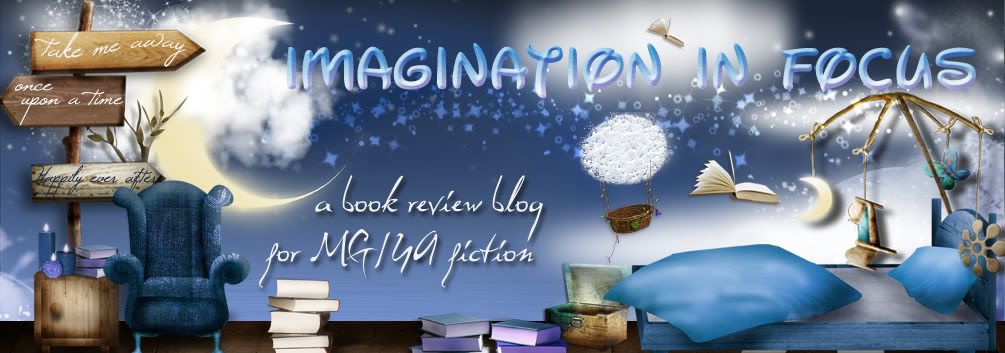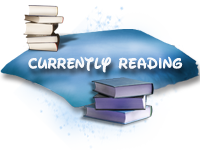Finnikin of the Rock (Lumatere #1) - Melina Marchetta
Publisher: Candlewick
hardback
Recommended for: Adults Only (in what I can only describe as a complete travesty, this book is marketed to Young Adults. I severely object to this book - and its sequel - being labeled 'YA' anywhere or by anyone)
At the age of nine, Finnikin is warned by the gods that he must sacrifice a pound of flesh to save his kingdom. He stands on the rock of the three wonders with his friend Prince Balthazar and Balthazar's cousin, Lucian, and together they mix their blood to safeguard Lumatere.
But all safety is shattered during the five days of the unspeakable, when the king and queen and their children are brutally murdered in the palace. An impostor seizes the throne, a curse binds all who remain inside Lumatere's walls, and those who escape are left to roam the land as exiles, dying by the thousands in fever camps.
Ten years later, Finnikin is summoned to another rock—to meet Evanjalin, a young novice with a startling claim: Balthazar, heir to the throne of Lumatere, is alive. This arrogant young woman claims she'll lead Finnikin and his mentor, Sir Topher, to the prince. Instead, her leadership points them perilously toward home. Does Finnikin dare believe that Lumatere might one day rise united? Evanjalin is not what she seems, and the startling truth will test Finnikin's faith not only in her but in all he knows to be true about himself and his destiny.
--
I originally wasn't going to put this review here, because it is less of a 'review' and more of a rant. But I'm trying to move all my reviews from Goodreads over to my blog, so here it goes.
Even though she wrote one of my favorite novels, Jellicoe Road, I really don't care for Melina Marchetta. And it's because of this series, the Lumatere Chronicles, the foray of a mostly contemporary Australian author into epic fantasy. Readers, if this is what constitutes a modern fantasy, then I really need a time machine so I can go back to the '50s and hang out with men who really know how to write fantasies: Tolkien, Alexander, and Lewis. Even Philip Pullman (whose His Dark Materials are not exactly 'fantasies') seems decent compared to this.
And once again, it's frustrating because I'm definitely in the minority on this one. If you know me, you can probably guess why I didn't like this book. I'll be brief and just sum it up in one word: protagonist. Yes, the main character, Finnikin, that everybody loves to drool over, was the worst part of the book for me. I mean, he was just a disgusting character. I really would like to know how readers (especially girls) can get through this book and rate it 5 stars. It completely escapes me. I guess I like my heroes to respect women. And when I say 'respect women,' I mean not seeing them as objects of gratification. Without dropping a spoiler, and without wanting to get into it, because it's just downright disgusting, I will say that what Finnikin does in this novel is something you would never EVER see a character in Tolkien's universe commit. And frankly, I don't think young readers ought to be subjected to such behavior on part of the hero. I think it might confuse them or give off the message (as Marchetta no doubt gave off to me, a grown woman) that the behavior in question is no big deal and something that ought not warrant any thought. But hey, as long as girls are okay with it, and continue to excuse it, I guess it's not really a big deal, right?
And once again, it's frustrating because I'm definitely in the minority on this one. If you know me, you can probably guess why I didn't like this book. I'll be brief and just sum it up in one word: protagonist. Yes, the main character, Finnikin, that everybody loves to drool over, was the worst part of the book for me. I mean, he was just a disgusting character. I really would like to know how readers (especially girls) can get through this book and rate it 5 stars. It completely escapes me. I guess I like my heroes to respect women. And when I say 'respect women,' I mean not seeing them as objects of gratification. Without dropping a spoiler, and without wanting to get into it, because it's just downright disgusting, I will say that what Finnikin does in this novel is something you would never EVER see a character in Tolkien's universe commit. And frankly, I don't think young readers ought to be subjected to such behavior on part of the hero. I think it might confuse them or give off the message (as Marchetta no doubt gave off to me, a grown woman) that the behavior in question is no big deal and something that ought not warrant any thought. But hey, as long as girls are okay with it, and continue to excuse it, I guess it's not really a big deal, right?
And reading an advance copy of Froi of the Exiles has made me realize...it's not just Finnikin. I didn't like anybody in this novel, except for Evanjalin, and even she annoyed me at times. Girls in fantasies fall into usual tropes: either they're damsels in distress, old crones, or scheming, conniving shrews (Evanjalin!) I hate to say it, but I'm noticing a pattern with Marchetta's books: broken characters can always be redeemed, so she seems to say. And call me what you will (view spoiler), but I don't agree with that philosophy - at least, not in books. To me, there is such a thing as making characters too 'screwed up' to the point of being past redemption. Finnikin and Froi were too 'icky' for my taste.
And yes, having a character (the illustrious and heroic 'Froi') attempt to rape a character in one novel, only to wind up as the misunderstood but no less heroic protagonist in the sequel, is what I would call 'icky.' It's the kind of characterization I expect to see in a George R.R. Martin novel; Martin can get away with it, though, because he's not shoving his work at kids.
So...how can I say that Jellicoe Road is the closest thing I have to a favorite novel, when I'm not even sure that I like Melina Marchetta? Don't get me wrong, she's a fabulous writer with an incredible and thoughtful eye for detail, but as far as a storyteller, I'm finding that the more of her novels I read, the more dissatisfied I become. Why does everything have to be so complex? Why do all her characters have to be so depressingly broken?
I've already severed all reading ties with Cinda Williams Chima, and I might have to do the same with Melina Marchetta...
Mostly, I just don't think modern authors know how to write good fantasies. The two most popular YA fantasies - at least on Goodreads - seems to be this book and Graceling, both of which are products of modern authors with highly worldly and progressive messages set in completely nihilistic universes with characters that Nietzsche himself might like.
And yes, having a character (the illustrious and heroic 'Froi') attempt to rape a character in one novel, only to wind up as the misunderstood but no less heroic protagonist in the sequel, is what I would call 'icky.' It's the kind of characterization I expect to see in a George R.R. Martin novel; Martin can get away with it, though, because he's not shoving his work at kids.
So...how can I say that Jellicoe Road is the closest thing I have to a favorite novel, when I'm not even sure that I like Melina Marchetta? Don't get me wrong, she's a fabulous writer with an incredible and thoughtful eye for detail, but as far as a storyteller, I'm finding that the more of her novels I read, the more dissatisfied I become. Why does everything have to be so complex? Why do all her characters have to be so depressingly broken?
I've already severed all reading ties with Cinda Williams Chima, and I might have to do the same with Melina Marchetta...
Mostly, I just don't think modern authors know how to write good fantasies. The two most popular YA fantasies - at least on Goodreads - seems to be this book and Graceling, both of which are products of modern authors with highly worldly and progressive messages set in completely nihilistic universes with characters that Nietzsche himself might like.
In the fantasy genre, there is something to be said for traditional-style storytelling. Look at C.S. Lewis, Lloyd Alexander, and J.R.R. Tolkien. All of their fantasy novels featured characters with integrity and a moral code. It's disillusioning to me that integrity is no longer required in a fantasy hero or heroine...
This is one such book that I recommend to no one, but I think that some adults might be impressed with Marchetta's fantasy universe, doom-and-gloom as it is.
















